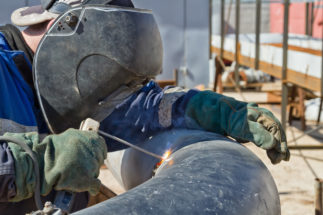
What Refractory Metals are Available from China Special Metal Parts, Inc.?
Refractory metals are exceptionally popular for use in a range of different industrial contexts – particularly heavy industry, construction, oil and gas and automotive – due to their durability and strength.
These materials are expertly fabricated by way of metallurgy – the process of combining pure metal powders, applying heat, cold working and annealing.
The team at Special Metals offers a selection of refractory metals to suit the requirements of a wide range of clients.
In this article, we’ll introduce you to the six refractory metals we supply and explain a little about their properties.
Tungsten Metal
Exceptionally popular in tool fabrication thanks to its significant tensile strength, corrosion resistance and exceptionally high melting point of 3422°C.
It can be used to create exceptionally thin wires too – the filaments you see inside incandescent bulbs are made from tungsten. Other uses include X-ray targets, heating elements, missile components and counter weights.
Tantalum Metal
Tantalum also has an extremely high melting point: 2990°C to be precise. It’s a superb conductor too, which makes it perfect for certain electrical applications.
With extreme corrosion resistance against molten metals and liquids, its durability makes it a highly desirable material for a range of heavy duty projects.
Tantalum is also biocompatible, which means that the human body does not produce a toxic or immunological response to its presence – making it superb for medical applications.
Tantalum is often used in the fabrication of heat exchanger tubes, charge carriers, capacitors, electrodes and grounding rings, jet engine parts, missile parts and vacuum furnace parts.
Niobium Metal
Similar to tantalum but with half the density, niobium is particularly suitable to cold working, making it ideal for drawing into wire.
Its melting point is 2470°C, and, as with the previous two metals, it is highly corrosion resistant. Common uses include sintering trays and boats, special chemical applications, superconductors, medical components, jet engine parts and lighting.
Molybdenum Metal
Molybdenum is an exceptionally hard and durable metal of great purity. It has a melting point of 2620°C and serves as a superb conductor. It is also highly corrosion resistant.
This material is regularly used in the fabrication of sintering trays and boats, charge carriers, aerospace parts, plasma spraying nozzles and electrodes, sputtering targets, furnace components, glass stirrers, and medical parts.
Zirconium Metal
Another popular refractory metal is zirconium. It’s a softer, more malleable material with a melting point of 1855°C and high levels of resistance to corrosion by alkalis, acids, salt water and a wide range of other substances.
Zirconium is commonly used in laboratory crucibles, metallurgical furnaces, surgical appliances, missile components and vacuum tube filaments.
Titanium Metal
Titanium is one of the most widely used refractory metals. Special Metals is a leading UK supplier of this material.
With huge levels of tensile strength and a melting point of 1670°C, it’s a flexible metal of low density that is anti-allergenic and non-toxic, making it superb for medical use – including the fabrication of prostheses and implants.
Titanium is also used in the construction, petrochemical and aerospace industries to name just a few.
For more information about the refractory metals available from Special Metals, simply contact our team today using the handy online contact form on our website.

Leave a response
Your email address will not be published. Please enter your name, email and a comment.